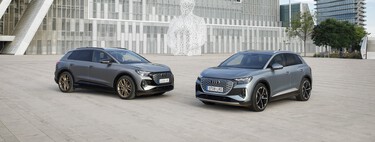The future of the electric car and the raw materials needed to build it have generated a business that no one wants to miss out on. So much so that Joe Biden has decided to implement a Cold War Law to increase the production of rare minerals related to the batteries of these cars.
national defense. Specifically, Joe Biden has launched The Defense Production Act, a law that dates back to 1950 and that was carried out under the mandate of President Harry S. Truman during the Korean War. The goal is to ensure that US companies “create, expand, or preserve’ the manufacturing capabilities of the industrial resources, technologies, and materials necessary to meet national security requirements,” as reported by The Washington Post, referring to the Department United States Security.
More help. With the application of this rule, the Government has the power to provide greater aid or facilitate the work of those companies that are dedicated to exploiting what are considered key sectors for national defense. In this case, electric cars and their batteries are included, and from The Washington Post they point out that it would be about “financing feasibility studies and productivity modernizations”, without including “loans or direct purchases of these minerals (rare minerals) or common financial tools” contained in said Law.
China. The priority objective is to reduce dependency in a market where China is gaining ground and is already the largest manufacturer and buyer of electric vehicles. “We need to end our long-term dependence on China and other countries for investments that will drive the future,” Biden said during the presentation of the measure, according to The New York Times.
The minerals. The United States wants to improve the extraction, treatment and recycling of rare materials such as nickel, lithium, cobalt, graphite or manganese. They are key raw materials for the production of batteries for the next electric cars and now depend on “unreliable foreign sources”, in the words of the US president.
Upward. In addition to foreign dependency, manufacturers are encountering another problem: rising prices. Suppliers have to work in a highly stressed market that prevents them from lowering the costs of producing electric vehicles. In fact, lithium has almost quintupled its price in a year and nickel experienced a rise in price that forced the closure of the London Metal Exchange, the world’s most important futures market for these raw materials.
The tendency. The coronavirus crisis and logistics issues have left manufacturers sold and have shown that the United States and Europe have a supply chain problem, with a growing reliance on Asia. The American decision is not unique.
Europe and Spain are also working to be competitive in the electric car. The PERTE will allow the construction of a Volkswagen factory for the production of batteries with a historic investment. Today a new PERTE has been announced for the production of semiconductors in our country, related to the Chip Law of the European Union.
Photo | Curious Photography
George is Digismak’s reported cum editor with 13 years of experience in Journalism
